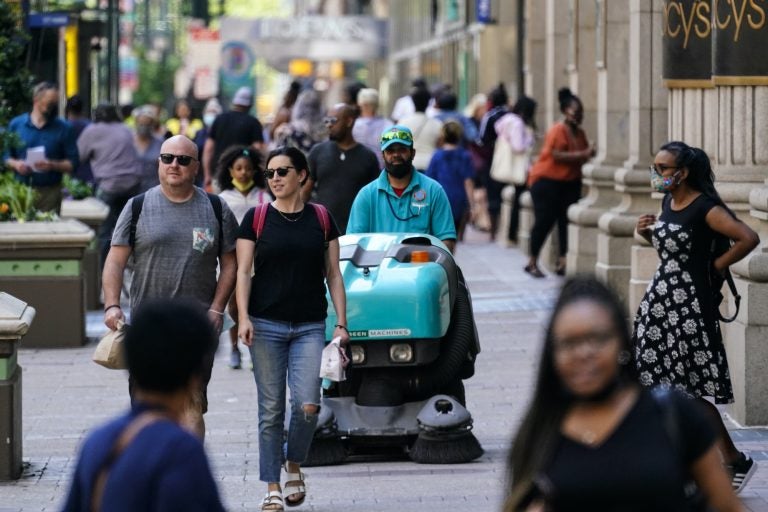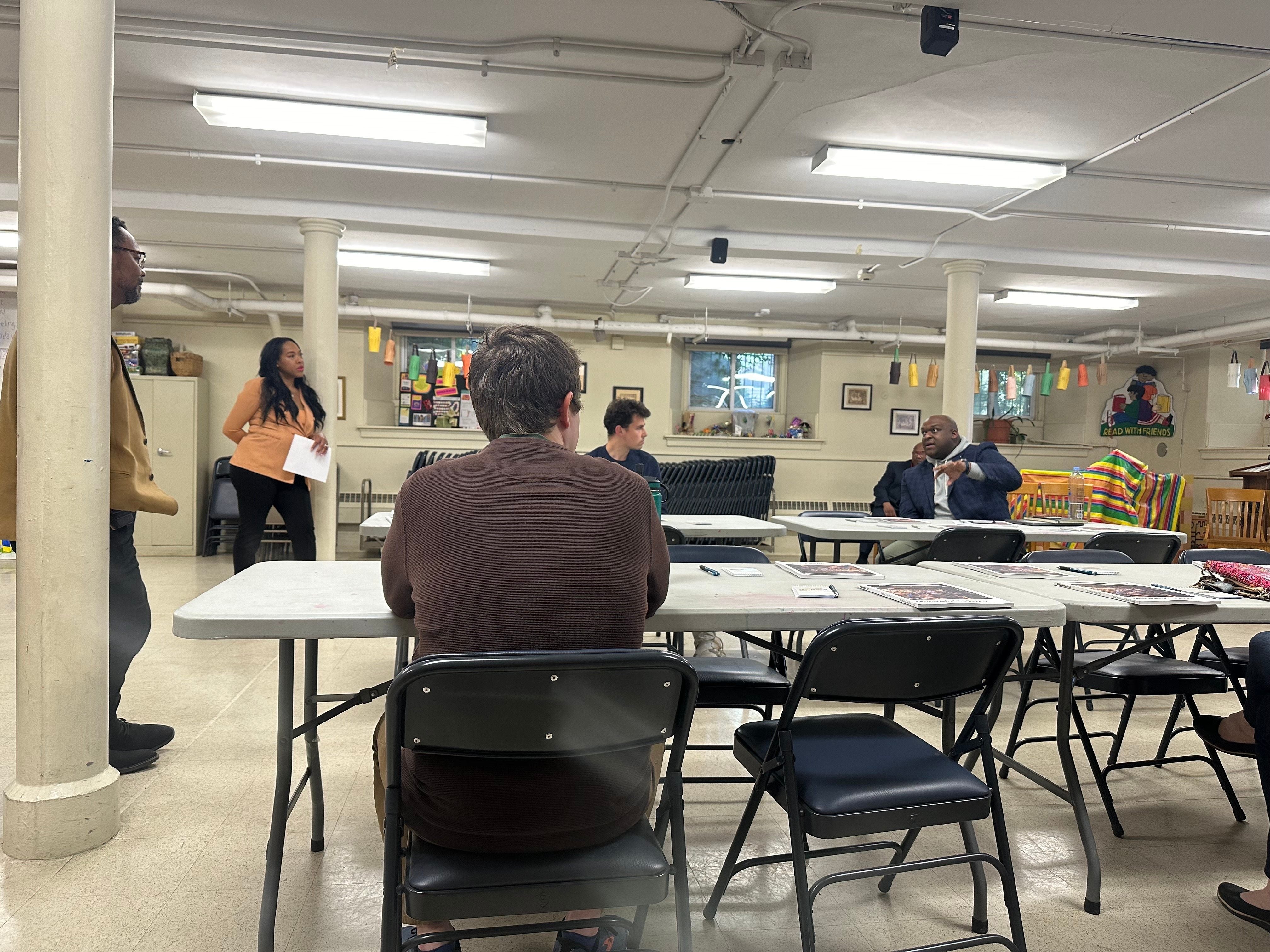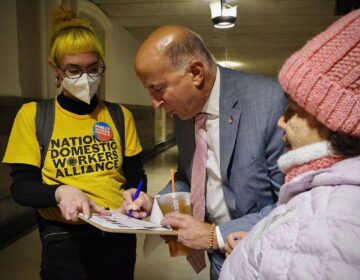Bridging Blocks: Philly’s ‘missing middle’ wage jobs make career matchmaking harder, residents say
For a city of its size, Philadelphia has fewer middle-wage jobs than New York City, Baltimore, Nashville and D.C., research from The Pew Charitable Trusts shows.
Listen 1:07
People walk along Market Street in Philadelphia, Friday, May 21, 2021. (AP Photo/Matt Rourke)
There’s one key workforce development metric many are tracking in Philadelphia — the growth of living-wage jobs.
But even before the COVID-19 pandemic, Philadelphia lagged behind peer cities for those “middle-wage” jobs — paying between $18 and $27 an hour.
In 2019, the density of middle-wage jobs in Philadelphia was 758 out of 1,000 working-age residents. That’s lower than New York City, Baltimore, Nashville, San Francisco and Washington D.C., according to the U.S. Census data crunched by The Pew Charitable Trusts.
The topic of “Building Tomorrow’s Workforce” was discussed during a WHYY Bridging Blocks event held at Thomas F. Donatucci, Sr. Library in South Philly. The event was co-hosted by Eric Marsh Sr., manager of community and engagement for WHYY News and education reporter Amanda Fitzpatrick Abdur-Razzaaq.

About a half-dozen community members gathered to debate whether a college degree and its debt is worth it for the next generation workforce, or if a vocational trade or apprenticeship is a better bet. But support networks for individuals seeking living-wage jobs were discussed at length and how much isn’t initially shared with younger job seekers — like the hardships of paying for college or upfront costs to trade school, which includes costly tools.
Overall, there’s a renewed sense of optimism among leaders in Philadelphia, said Le’Yondo Dunn, CEO of YouthBuild Philadelphia Charter School.
“I think the city is in a moment right now where everyone who is in a seat to impact change is thinking about how we can collectively work together,” Dunn said, adding that success would be a team effort. “The work related to workforce development programming is complex.”
Dunn works with students who he said have been pushed out of traditional school and are considering what their future might be. Common obstacles to entering the workforce as young adults include a lack of driver’s licenses, which are often required even for jobs that aren’t in the transportation field, he said.
Attendee Patrick Van Wagenen is hoping to start a new career, but even with a college degree, that’s not always easy.
When Wagenen started working in hospitality eight years ago after graduating with a degree in environmental science, he thought it was temporary. But a job in his field never materialized. Employers wanted years of experience he simply didn’t have.
Now, he feels more stuck than ever.
“I kind of worry a little bit that I’ve missed my chance,” he said.
But with some entry-level jobs, employers want younger, more recent graduates, he said.
“Sometimes even people who are still in school. So that’s why I find that I don’t get a lot of responses,” he said. “I would love to use my education … but at this point I’m definitely open to more possibilities.”
He’s considering changing industries and learning new skills like computer coding or cybersecurity. Or even learning a building trade to move forward in his career.

Get daily updates from WHYY News!
WHYY is your source for fact-based, in-depth journalism and information. As a nonprofit organization, we rely on financial support from readers like you. Please give today.






